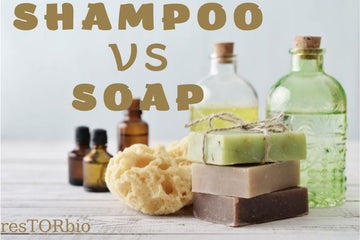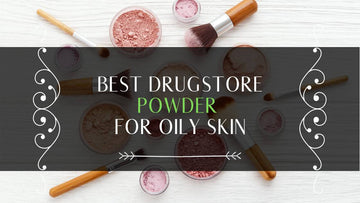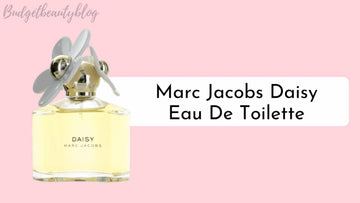
Shampoo vs soap are both used to cleanse the body, but some key differences are.
The shampoo is designed to remove oils and product build-up from the hair, while the soap is better at removing dirt and sweat from the skin. The shampoo is also more likely to cause dryness and scalp irritation, while the soap is less likely to cause these problems.
In this article, we look at the many differences between shampoo and soap and explore why both are used.
Shampoo Vs Soap: The Secret Ingredient Sodium Lauryl Sulfate
It's not soap, but what you may think of as soap isn't soap. A combination of animal fat or vegetable fat with an alkaline solution, a mixture of water-soluble salts and water, is often what you would call soap. Alkaline solutions can be found in nature, such as lye. So soap made from natural ingredients can be made.
Most soaps we use today are not made from natural ingredients. They are usually made with a surfactant, a detergent that makes it easier for water to spread and thoroughly wet something.

The detergent you are using is technically a soap.
SLS is a common ingredient in shampoos. This is what makes shampoo foam up or lather when it's applied to wet hair. It is often the second or first ingredient in shampoos.
SLS is the same in shampoo and soap. The SLS molecules grab the oil and dirt from one end while the other attaches to the water. The SLS cleanses your hair and skin by taking the oil and soil along with it when it is rinsed off.
Shampoo Is Different From Soap
Although it may seem odd, bar soap was used to clean hair up until the 1930s. This all changed when liquid coconut oils were made available. This oil was able to liquefy soap, and eventually, a liquid soap that could lather was created (also known as Shampoo) was invented.
Bar soaps are no longer recommended for hair washing. Bar soap would leave behind soap scum if it were used instead of shampoo. It would be difficult to rinse the hair and scalp with hard water if you have it.

The shower gel is not recommended for hair. The percentage of surfactants contained in each product is something you won't be able to see from the label. Shampoo generally has a lower rate than shower gel. This allows the shampoo to rinse quickly from your hair. This also means less oil is being pulled out of the hair, which is essential, as we'll see below.
Hand washes also contain a higher proportion of surfactants. Face wash, which can be too costly to use as shampoo, often contains additional ingredients that clean the skin and prevent future breakouts.
Why Is There Such a Different Between Shampoo And Soap?
Stephen McNeil, University of British Columbia Chemistry Professor, said that if shampoo were only meant to remove oil, it would work the same way as hand soap. McNeil explained to NPR that shampoo alone, or SLS, is too harsh on hair.
Your hair and scalp make a thin layer of oil to protect them. The hair will remain shiny and smooth thanks to this oil. A detergent cannot distinguish between the oil in your hair and the natural oil you need to protect and shine. It gets rid of all.

You could wash your hair with soap only, but it would remove any oil or dirt. However, your hair would be dull, dry, brittle, and complex to style.
Therefore, shampoos that use SLS must repair any damage to the hair. They add conditioners to the formula to give your hair gloss and make it easier to manage. They can use natural oils or artificial chemicals to condition the hair.
Unfortunately, shampoo alone is not enough to protect hair from the harmful effects of SLS. Most people use a separate conditioner.
Are you looking for the best shampoo and conditioner on the market, look over our article to choose.
What About Shampoo Bears?
We get it. You think they look just like soap bars, so how are they different? Or, you might be thinking, shampoo bars are so much better than actual soap, so they can't possibly be bad?
SLS is still present in many commercial shampoo bars. However, brands claim that the shampoo bar's concentration is not as high as liquid shampoos due to its use. The reason is that you only get the foam from the top of a shampoo bar, so you use less shampoo than liquid shampoo. Because there isn't as much SLS to remove the oils,
There are SLS-free shampoo bars available that contain coconut oil and other products. These bars are very different from commercial soap bars.
If There Are Natural Soaps, Are There Natural Shampoos That Don'T Contain SLS?
You can make your shampoo or purchase SLS-free shampoos like our New Wash.
There are many recipes available online to make your shampoo. These recipes are SLS-free. These are some of the most common ingredients:
- Castile liquid soap
- Apple cider vinegar
- Coconut milk
- Eggs
- Avocado
- Scented herbs
- Essential oils
You can also purchase SLS-free products like our New Wash. Our cleansing wash does not contain SLS, but your hair will still be clean. SLS-free products contain milder cleansing agents that will help keep your hair and scalp moisturized.
Does shampoo expire? Learn more on this topic by visiting our blog.

An SLS-free shampoo can even repair your hair. However, it will take time, depending on how damaged your hair is. While some people notice a big difference right away, others may experience a gradual change over time. It may take longer to see any changes in your hair is significantly damaged, or your scalp is very itchy.
Overactive oil glands may take longer to produce less oil. Your hair and scalp will become healthy and hydrated once everything is balanced. You won't even need a conditioner.
Is Soap Perfect To Be Used Instead Of Shampoo, Or Vice Versa?
Using real soap, which is made from animal fat or vegetable fat combined with an alkaline solution to clean your hair, will pull out more oils than a shampoo containing SLS. It won't condition the hair. You can use shampoo on your body in an emergency. To remove all oils and dirt, you might need to scrub harder or longer.
Although most shampoos and soaps on the market are made up of different combinations of detergents that lift dirt and oil from any surface, some properties can make shampoo more effective for hair.
The best way to care for your hair is not to use soaps or shampoos that contain SLS. Instead, wash your hair with a formula that does not strip the hair's protective oils and conditions the hair.
This cream cleanser is made with essential oils and natural ingredients, cleansing without stripping your hair of its protective barrier.
You may still be wondering, what ingredient in shampoo causes hair loss? Could you read our blog to find out more?
FAQs
Is Soap More Effective Than Shampoo?
Both are made to clean your hair and skin. Soap cleans the hair and scalp, shampoo cleans your body, and soap cleans your hands.

What Makes Shampoo Different From Soap, and How Does It Differ?
Shampoos tend to have pH levels between 4 and 6, which is very close to natural hair pH. ... Liquid body wash or soap is made with stronger detergents that can be harsher on your skin. This can lead to oily and dirty hair.
Is It Okay To Use Soap Rather Than Shampoo?
Yes, you can. It will feel different from shampooing your hair. Although natural soap can clean your hair, it will make the hair feel slightly waxy. You can also add conditioners, detanglers, and vitamins to give your hair a soft feeling after you use them.

Is Soap Causing Hair To Fall Out?
Does soap cause hair loss? Hair loss can be caused by soaping your hair with soap. Your scalp is acidic, and soaps have a high pH. It can leave residue on hair and cause it to become dry, rough, and tangled.
Is Soap Able To Stop Hair Growth?
The sebaceous glands produce the oil, also found underneath the scalp. Any soap, synthetic or natural, can remove this oil, but it doesn't affect hair growth.
Conclusion
Soap is a fantastic cleaner and makes your hair shine. On the other hand, shampoo takes a little longer to work, but it's also much easier to rinse out of your hair. If you want your hair to be clean and shiny, shampoo is probably a better choice.
However, if you want something to remove dirt and sweat from your skin, then soap may be the way to go. As a result, it's essential to find the balance between the two. It all depends on your personal preferences and which type of product you're after. resTORbio hopes you enjoyed this article.
Video




